Fourth Sunday of Lent – Cycle B
Reflecting on John 3: 14-21
“Just as Moses lifted up the serpent in the desert,
so must the Son of Man be lifted up,
so that everyone who believes in him may have eternal life.”
A little background on this strange passage might help. Way back in the time of the Israelite sojourn in the desert, the Hebrews suffered all the trials of desert life. They were hungry and thirsty, and the daily manna was so monotonous that they cried out to God, saying We detest this miserable food! God then added to their misery by “sending” snakes to bite them! Yikes.
They repented of their rebelliousness and asked God to forgive them and take the snakes away. And here’s what’s fascinating: God’s cure for the “snake-bit Hebrews” was for Moses to mount a bronze serpent on a pole and have them gaze on it. And those who had been bitten were cured (Numbers 21:4-9). Wow.
We’re right in the middle of Lent now, and the struggle with our own hungers and thirsts is in full gear. Might we take inspiration from Moses, and look straight into the heart of that which has wounded us so badly in our lives? Can we ask for the grace to gaze on the piercings of our pasts? The jobs we’ve lost, the deaths we’ve grieved, the gifts we’ve squandered, the children who’ve struggled with addictions and loss of faith—Jesus asks us to look on them, and then look on Him, raised up on the cross. Here, oh Israel, is your true healer. Gaze on him. Trust that he can take you the rest of the way, through this Lent and every wilderness ahead.
What would YOU like to say about this question, or today’s readings, or any of the columns from the past year? The sacred conversations are setting a Pentecost fire! Register here today and join the conversation.
I have come to light a fire on the earth; how I wish it were already burning (Lk.12:49).

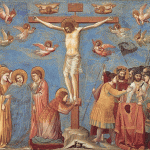
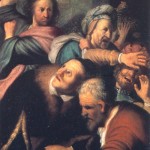
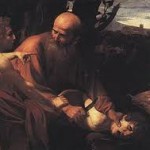
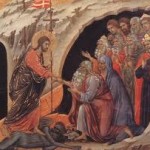
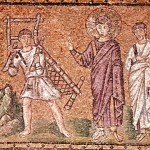
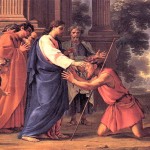


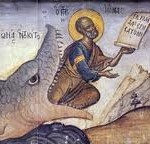
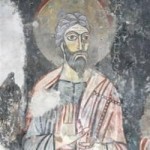
Answer: When I fled Martial Law in 1972 and landed in the U.S. with just $29 in my pocket. Now I know how the Spirit was behind the whole event which is why I dedicated my first monograph to the Holy Spirit. – – Cris